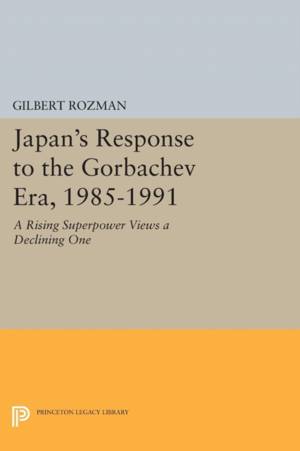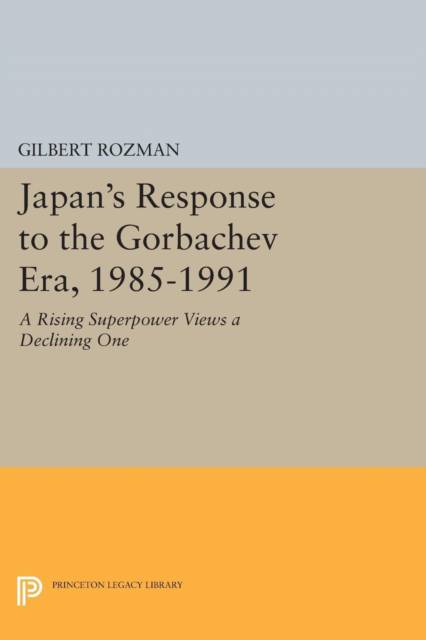
- Retrait gratuit dans votre magasin Club
- 7.000.000 titres dans notre catalogue
- Payer en toute sécurité
- Toujours un magasin près de chez vous
- Retrait gratuit dans votre magasin Club
- 7.000.0000 titres dans notre catalogue
- Payer en toute sécurité
- Toujours un magasin près de chez vous
Japan's Response to the Gorbachev Era, 1985-1991
A Rising Superpower Views a Declining One
Gilbert RozmanDescription
Gorbachev's transformation of both Soviet socialism and the Cold War world atmosphere kindled a far-reaching debate in Japan. Would Japan at last free itself of its secondary postwar standing? Would a new Soviet system and world order soon be established? Gilbert Rozman argues in Japan's Response to the Gorbachev Era, that Japanese perceptions of the Soviet Union are distinctive and are helpful for understanding what will become an influential worldview. Focusing on diverse opinion leaders and the relationship between the Japanese media, policy-making, and public opinion, Rozman shows how long-standing negative images of Soviet socialism and militarism have been reconsidered since the mid-1980s. His analysis treats burning issues such as the Northern Territories dispute, the Soviet commitment to reform, and the Soviet-American relationship. It also sheds light on Japanese views of Soviet history, modernization, and national character. Such views reveal some of the building blocks for the emergent Japanese worldview.
Originally published in 1992. The Princeton Legacy Library uses the latest print-on-demand technology to again make available previously out-of-print books from the distinguished backlist of Princeton University Press. These editions preserve the original texts of these important books while presenting them in durable paperback and hardcover editions. The goal of the Princeton Legacy Library is to vastly increase access to the rich scholarly heritage found in the thousands of books published by Princeton University Press since its founding in 1905.Spécifications
Parties prenantes
- Auteur(s) :
- Editeur:
Contenu
- Nombre de pages :
- 388
- Langue:
- Anglais
- Collection :
- Tome:
- n° 164
Caractéristiques
- EAN:
- 9780691600338
- Date de parution :
- 14-07-14
- Format:
- Livre broché
- Format numérique:
- Trade paperback (VS)
- Dimensions :
- 156 mm x 234 mm
- Poids :
- 539 g

Les avis
Nous publions uniquement les avis qui respectent les conditions requises. Consultez nos conditions pour les avis.






